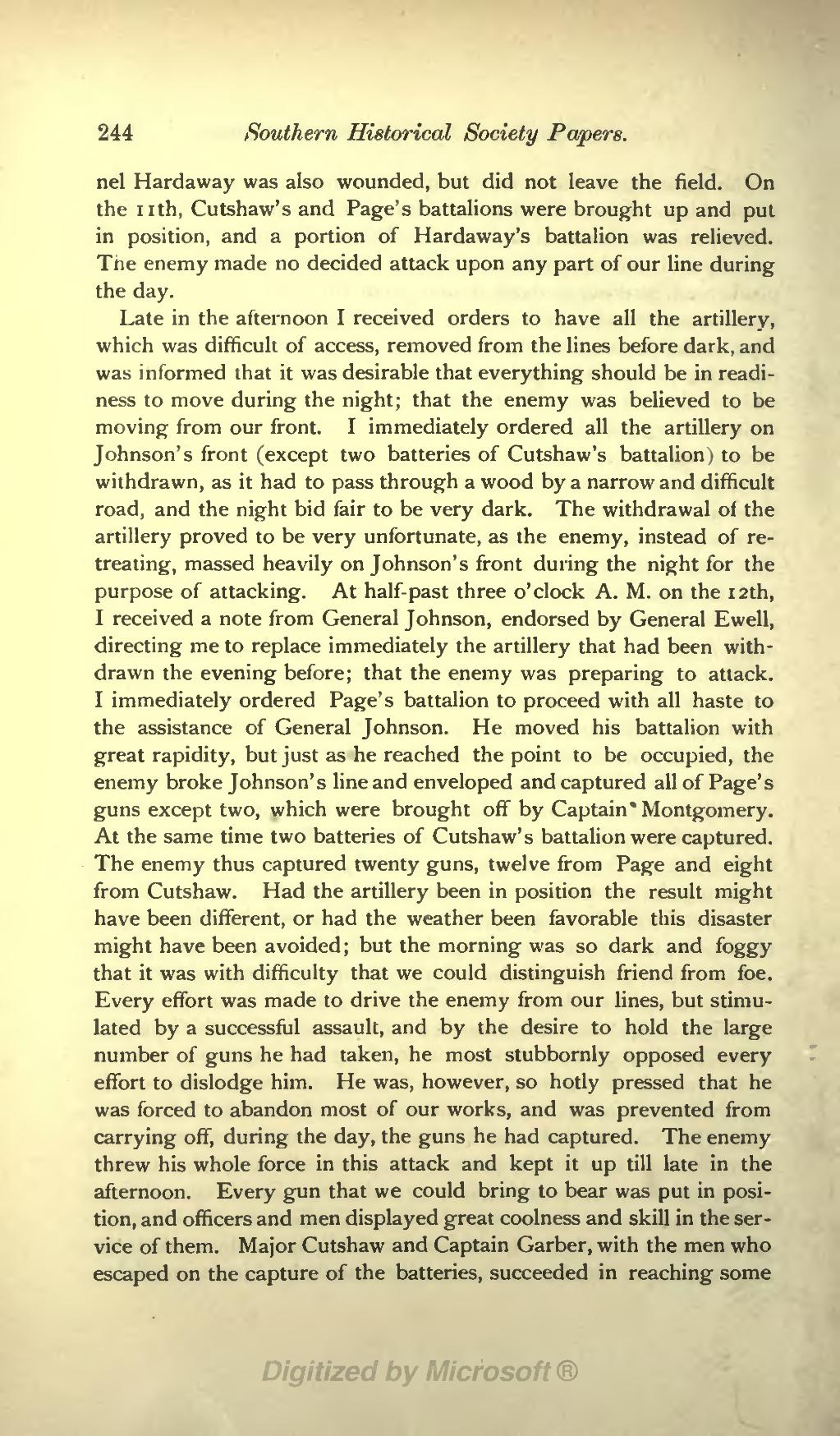244 Southern Historical Society Papers.
nel Hardaway was also wounded, but did not leave the field. On the nth, Cutshaw's and Page's battalions were brought up and put in position, and a portion of Hardaway 's battalion was relieved. The enemy made no decided attack upon any part of our line during the day.
Late in the afternoon I received orders to have all the artillery, which was difficult of access, removed from the lines before dark, and was informed that it was desirable that everything should be in readi- ness to move during the night; that the enemy was believed to be moving from our front. I immediately ordered all the artillery on Johnson's front (except two batteries of Cutshaw's battalion) to be withdrawn, as it had to pass through a wood by a narrow and difficult road, and the night bid fair to be very dark. The withdrawal of the artillery proved to be very unfortunate, as the enemy, instead of re- treating, massed heavily on Johnson's front during the night for the purpose of attacking. At half- past three o'clock A. M. on the I2th, I received a note from General Johnson, endorsed by General Ewell, directing me to replace immediately the artillery that had been with- drawn the evening before; that the enemy was preparing to attack. I immediately ordered Page's battalion to proceed with all haste to the assistance of General Johnson. He moved his battalion with great rapidity, but just as he reached the point to be occupied, the enemy broke Johnson's line and enveloped and captured all of Page's guns except two, which were brought off by Captain* Montgomery. At the same time two batteries of Cutshaw's battalion were captured. The enemy thus captured twenty guns, twelve from Page and eight from Cutshaw. Had the artillery been in position the result might have been different, or had the weather been favorable this disaster might have been avoided; but the morning was so dark and foggy that it was with difficulty that we could distinguish friend from foe. Every effort was made to drive the enemy from our lines, but stimu- lated by a successful assault, and by the desire to hold the large number of guns he had taken, he most stubbornly opposed every effort to dislodge him. He was, however, so hotly pressed that he was forced to abandon most of our works, and was prevented from carrying off, during the day, the guns he had captured. The enemy threw his whole force in this attack and kept it up till late in the afternoon. Every gun that we could bring to bear was put in posi- tion, and officers and men displayed great coolness and skill in the ser- vice of them. Major Cutshaw and Captain Garber, with the men who escaped on the capture of the batteries, succeeded in reaching some
